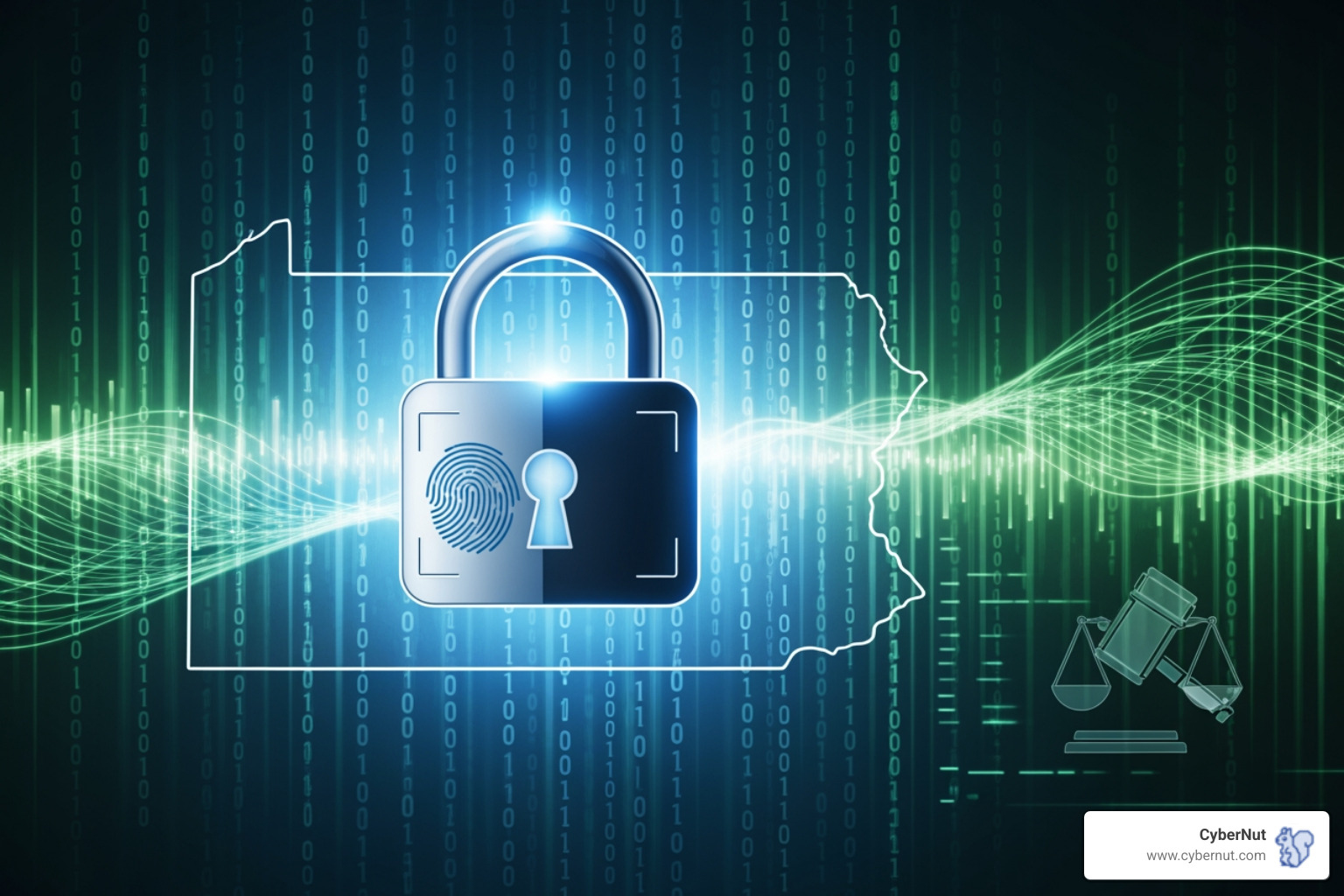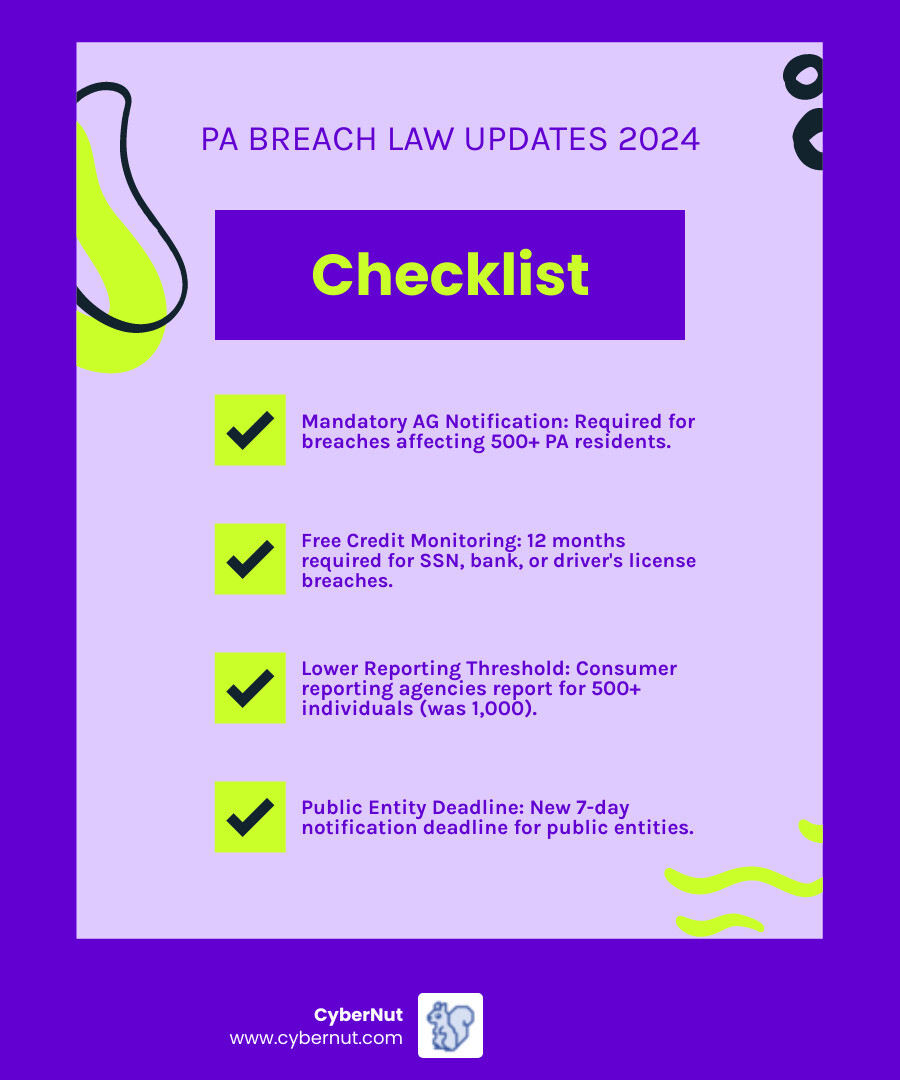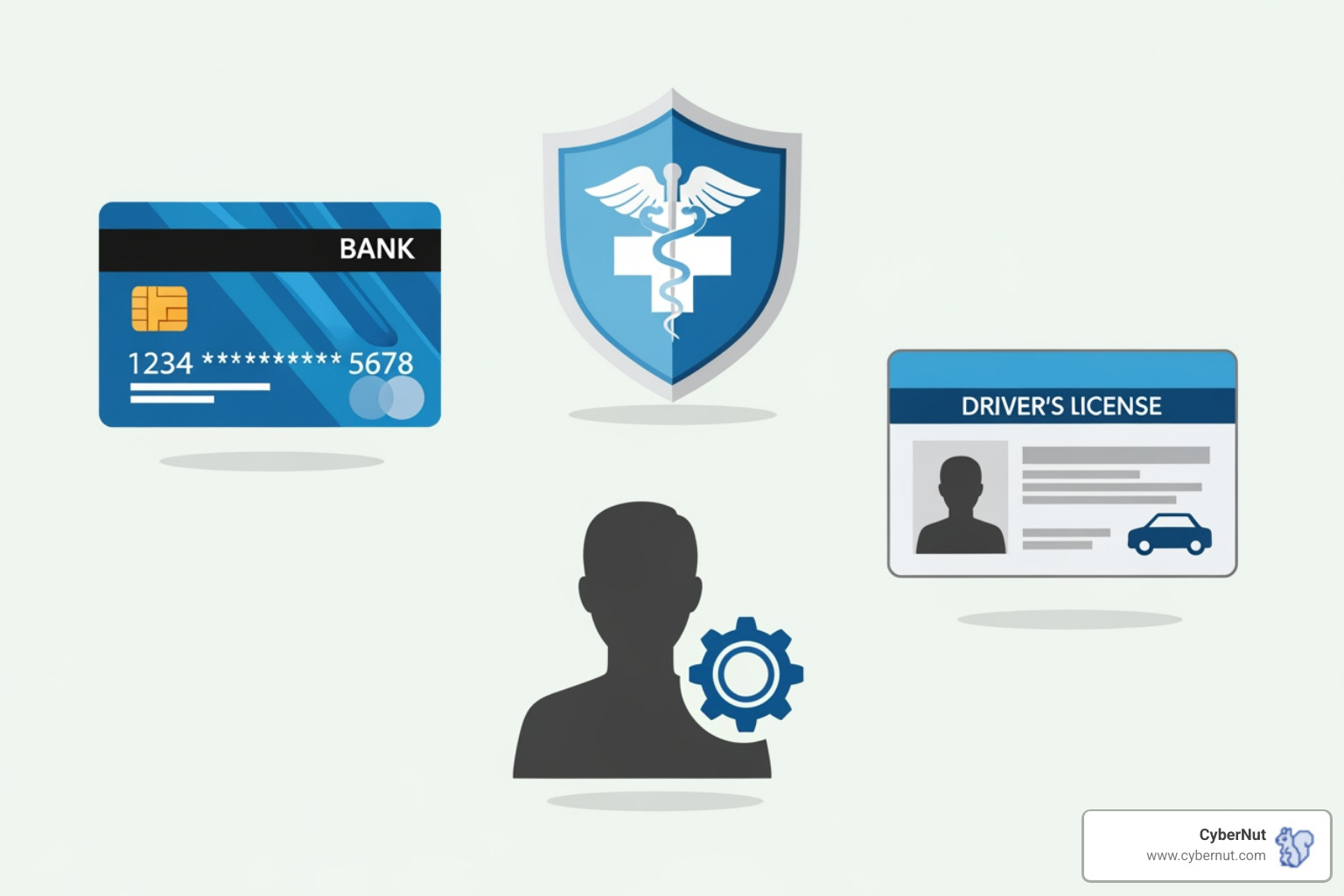
Oliver Page
Case study
November 7, 2025

Major updates to What to Know About Pennsylvania's Data Breach Notification Law in 2024 have made compliance critical for K-12 schools, businesses, and government agencies. If you handle sensitive data of Pennsylvania residents, here's a summary of the new requirements:
Key Requirements at a Glance:
Data breaches are a growing threat, as shown by the July 2024 breach at the Pennsylvania State Education Association affecting an estimated 500,000 people. For K-12 schools handling sensitive student and employee data, understanding the Breach of Personal Information Notification Act (BIPNA) is essential.
The 2024 amendments strengthen consumer protections with tighter notification deadlines, mandatory credit monitoring, and new reporting requirements to the Attorney General. The threshold for notifying consumer reporting agencies also dropped from 1,000 to 500 individuals, expanding reporting obligations.
The stakes are high. Violations are considered unfair trade practices under Pennsylvania's Consumer Protection Law, leading to enforcement actions, penalties, and restitution demands. For schools on tight budgets, a breach can lead to significant compliance costs and reputational damage.
This isn't just about checking compliance boxes; it's about protecting students, staff, and families from identity theft. It starts with understanding what the law requires and building defenses before a breach happens.
Need to know if your school is vulnerable? Get your school audited for phishing vulnerabilities—phishing remains the top entry point for data breaches.

Pennsylvania's Breach of Personal Information Notification Act (BIPNA), enacted in 2005, is the foundation of the state's data protection rules. Its purpose is to protect PA residents by setting ground rules for how organizations secure data and respond to breaches. The act applies to any entity—public or private—that maintains computerized personal information of Pennsylvania residents.
A "breach" under BIPNA is defined as the unauthorized access and acquisition of computerized data that compromises the security of personal information. This means the data must be obtained, not just viewed. The law's intent is to empower consumers with timely information and hold organizations accountable for safeguarding the data they manage. For schools, this means being responsible stewards of all student, staff, and family data.
To know if a breach requires notification, you must understand what counts as "personal information" under What to Know About Pennsylvania's Data Breach Notification Law.

BIPNA defines it as an individual's first name or initial and last name combined with one or more of the following unencrypted or unredacted data elements:
Publicly available information does not count, but if any of these sensitive elements are exposed with a name, a notification is likely required.
Beyond post-breach notification, Pennsylvania law mandates proactive prevention. The Pennsylvania's Business and Commerce Code requires entities to maintain reasonable data security measures. This legal obligation means you must:
The bottom line is that prevention is just as important as notification. Building strong security practices now means fewer breach notifications later.
Governor Josh Shapiro signed Senate Bill 824, enacting major changes to What to Know About Pennsylvania’s Data Breach Notification Law. Effective September 26, 2024, these amendments strengthen consumer protections and add new responsibilities for organizations handling data. It is crucial for schools, businesses, and government agencies to understand these updates to ensure compliance and protect individuals' data.
A significant new rule requires organizations to notify the Pennsylvania Attorney General (AG) if a data breach affects more than 500 residents. This notification must be concurrent with the notice sent to affected individuals. The report to the AG must include the organization's name and location, breach date, a summary of the incident, and the number of affected PA residents. The AG's office has launched an online reporting portal to streamline this process. Certain insurance companies regulated under 40 Pa.C.S. Ch. 45 are exempt from this specific AG notification requirement.
Providing credit monitoring is no longer optional in certain cases. Organizations must now offer 12 months of free credit monitoring services if a breach requires notification to a consumer reporting agency and involves an individual's:

This rule provides victims with essential tools to protect against identity theft. Notably, the inclusion of bank account numbers is a strong protection. If an individual is ineligible for a free credit report, the organization must cover the cost of an independent one.
The threshold for notifying consumer reporting agencies has been lowered. Previously, notification was required for breaches affecting over 1,000 individuals. Now, organizations must inform nationwide agencies like Equifax, Experian, and TransUnion if a breach impacts more than 500 individuals. This change means more incidents will trigger this important consumer protection measure.
For any Pennsylvania organization, especially K-12 schools and municipalities, understanding What to Know About Pennsylvania's Data Breach Notification Law is about proactive preparation, not just compliance. The 2024 amendments demand updated incident response plans and data handling policies. Since breaches can happen despite strong security, having clear protocols to identify, scope, and report incidents within the law's tight timelines is non-negotiable. The era of improvising a breach response is over.
Notification timelines vary by organization type. The clock starts upon 'determination' that a breach has occurred, which follows a brief but necessary investigation period.

Additionally, there are internal reporting deadlines. State agencies must inform the Governor's Office within 3 business days, while counties, public schools, and municipalities must notify their District Attorney within 3 business days. For schools, this tight 7-day window makes having a pre-existing incident response plan absolutely critical.
When working with third-party vendors that handle personal data, your organization retains ultimate responsibility for notification. However, vendors have their own legal duties. A vendor must notify you "as soon as reasonably practicable" after finding a breach of your data. This prompt communication is vital, as any delay on their part impacts your ability to meet your own notification deadlines.
To ensure accountability, vendor contracts should clearly define breach notification timelines, required information, and financial responsibility for costs like credit monitoring. When reviewing contracts, especially for schools, prioritize strong data security and clear notification clauses over a low bid.
Non-compliance with What to Know About Pennsylvania's Data Breach Notification Law carries severe consequences. Violations are treated as unfair or deceptive acts under the state's Consumer Protection Law, granting the Attorney General broad enforcement powers. Potential penalties include:
For K-12 schools on tight budgets, these financial penalties can be crippling. However, the reputational damage from mishandling a breach and breaking the trust of parents and staff can be even more devastating and long-lasting. Investing in cybersecurity training and preparedness is essential not just for compliance, but for protecting your community.
Wondering if your school's staff can spot the phishing attempts that lead to most breaches? Get your school audited for phishing vulnerabilities to find out where your risks are before a breach happens.
Receiving a data breach notice is alarming, but knowing What to Know About Pennsylvania's Data Breach Notification Law empowers you to act. As a Pennsylvania resident, you have legal rights and can take concrete steps to protect yourself and minimize potential damage.
Pennsylvania law provides you with real, enforceable rights:
When a notification arrives, take these steps immediately:

If you believe an organization has violated your rights (e.g., by failing to notify you promptly or provide required credit monitoring), you can file a complaint with the Pennsylvania Attorney General's Bureau of Consumer Protection. Use the online complaint form to describe the incident and provide evidence. The Bureau may mediate on your behalf or pursue formal enforcement. Additionally, you can check for class-action lawsuits related to the breach, which may offer another path to compensation. Pennsylvania law provides tools to fight back—use them.
The recent updates to What to Know About Pennsylvania’s Data Breach Notification Law can be complex. Here are answers to some frequently asked questions.
Yes, some exemptions exist to avoid regulatory overlap. Key exemptions include:
The U.S. has a "patchwork" of data privacy laws rather than a single federal one. Industry-specific federal laws like HIPAA (healthcare) and GLBA (finance) coexist with state-specific laws like Pennsylvania's. Often, state laws impose stricter requirements. For example, Pennsylvania's mandates for 12 months of credit monitoring and lower notification thresholds go beyond many federal standards. Organizations must comply with the strictest applicable law, which can be complex for businesses but results in stronger consumer protections.
"Substitute notice" is an alternative notification method allowed when direct notice is impractical. An organization can use it if one of the following conditions is met:
Proper substitute notice requires a combination of actions: sending emails to those for whom addresses are available, posting a conspicuous notice on the organization's website, and notifying major statewide media.
The 2024 updates to What to Know About Pennsylvania's Data Breach Notification Law have made compliance a fundamental responsibility for all organizations, especially K-12 schools. With tighter deadlines—like the 7-business-day notification window for public entities—and mandatory credit monitoring, the stakes are higher than ever. Schools are prime targets for cybercriminals due to the valuable data they hold and often-limited IT resources. Phishing remains the top attack vector, where one deceptive email can lead to a massive breach.
Fortunately, most breaches are preventable, and strong defense starts with people. Training staff and students to recognize phishing attempts is the most effective way to build resilience. At CyberNut, our phishing awareness training is designed for the unique needs of K-12 schools. Our approach is low-touch, automated, and engaging, using gamified micro-trainings that fit into busy schedules and create a culture of cybersecurity.
Compliance is critical, but the real goal is protecting the students, staff, and families who trust you. Don't wait for a crisis to test your readiness. Take proactive steps to strengthen your defenses now.
Wondering where your vulnerabilities are? Get your school audited for phishing vulnerabilities to find exactly where your team needs support. It's the first step toward real, lasting protection.
Ready to build a more resilient school community? Explore more cybersecurity resources and see how CyberNut can help your institution stay secure, compliant, and confident.

Oliver Page

Some more Insigths


Back